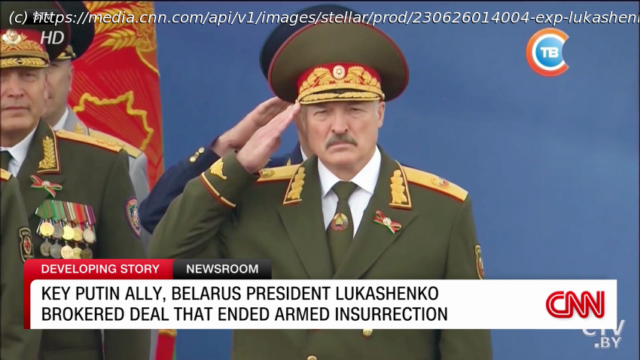Array
Wagner mercenary boss Yevegeny Prigozhin over-reached and lost.
His hubris-fuelled insurrection failed through a combination of hot-headed ambition and his inability to read Putin’s inner circle, of which he was a member, properly.
As one informed Moscow resident told me, the “system wasn’t ready for the radical change” he wanted.
When he packed up his tanks and pulled out of the Russian military headquarters in Rostov-on-Don Saturday, well-wishers rushed up to say thank you.
His battle-hardened troops, like veteran actors at a curtain call after a long and tense 24-hour performance, waved goodbye to an apparently adoring audience.
Whether it had it all been theater, we may never know, but in Prigozhin’s mind on Friday evening when he called his heavily armed forces to action on Russia’s not Ukraine’s streets, the time had come for him to take center stage.
For weeks, months even, he’d been arguing Russia’s war in Ukraine was being badly and unnecessary fought by an elite who couldn’t care less how many Russian lives were lost.
His message gained easy traction among Russians who understand that Putin and his coterie habitually lie and tolerate it only as long as their leader is strong and they enjoy stability.
It’s a compact forged across generations: resistance to dictatorship is useless, just put your head down and survive.
Feud spills into the open
For months now, Prigozhin struck a chord with his charismatic and carefully choreographed front-line rants from Bakhmut where his fighters were dying in their hundreds so Putin could claim a tiny gain in his grindingly slow war in Ukraine.
To many, Prigozhin seemed brave. No Russian general was seen going so close to danger.
Prigozhin claimed his troops were being starved of ammunition by another of Putin’s trusted inner circle, Russia’s Defense Minister Sergey Shoigu.
The Wagner boss’s obvious hatred of Shoigu had developed into a festering turf war over who would control Wagner.






